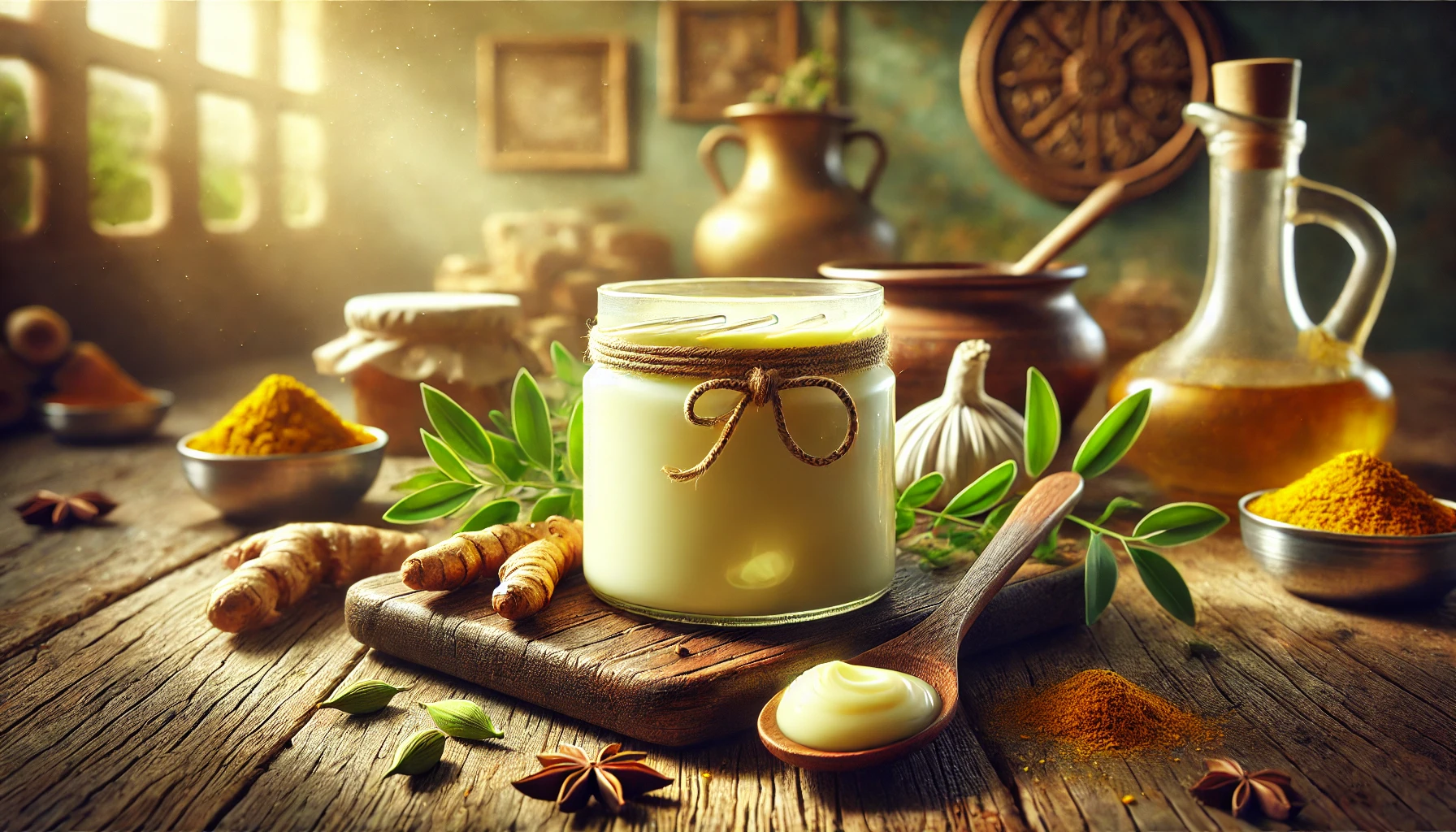Imagine opening the cupboard in your kitchen and finding a jar filled not only with a recipe but also with a secret to health and vitality handed down from generation to generation over millennia. Right now, you are looking at cow ghee, a basic ingredient in Indian cuisine and a mainstay of Ayurvedic treatment. Though modern wellness trends are always changing, cow ghee remains a nutritious powerhouse with a great value. We shall look at the reasons Ayurveda regards cow ghee as the ultimate health elixir in the next paragraphs. Our conversation will center on how this golden nectar may perhaps enhance your daily health regimen and be based on both conventional wisdom and contemporary scientific study. From the many benefits this golden delight provides for your digestive system to the ability it has to increase mental clarity, we will show how it may entirely change your health regimen.
Table of Contents
1. The Ingredients of Ayurvedic Treatment is Cow Ghee
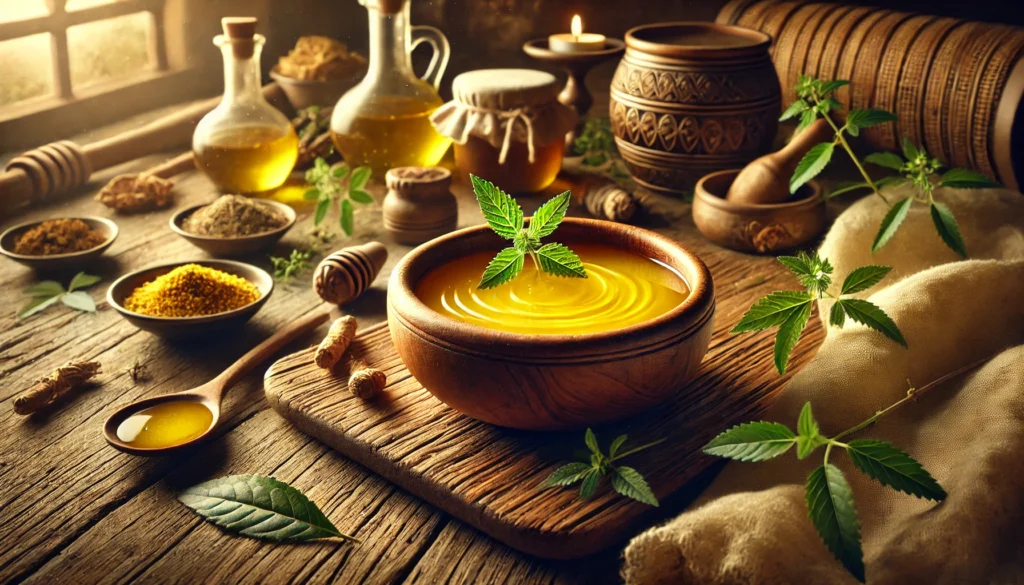
Cow ghee has been a very valued ingredient since Ayurvedic medicine, an ancient Indian medical practice spanning thousands of years, first started. Generation after generation of people have carried on this respect. Apart from its well-known therapeutic and cleansing properties, ghee surpasses the expectations by combining the tastes of great food with the benefits of being generally healthy. Ayurvedic literature offers a thorough justification for the importance of ghee in maintaining both physical and mental well-being as well as in reaching a condition of equilibrium among the components of the body. “Ojas” is thought to support immunity, energy, and strength. Considered to be the core of every component of the body is This idea runs at the core of this corpus of knowledge. Ghee is thought to help with Ojas, so enabling the body to be rejuvenated and the youthfulness to be extended into the future.
2. A Nutritional Analysis of Cow Ghee in Respect to Dietary Needs
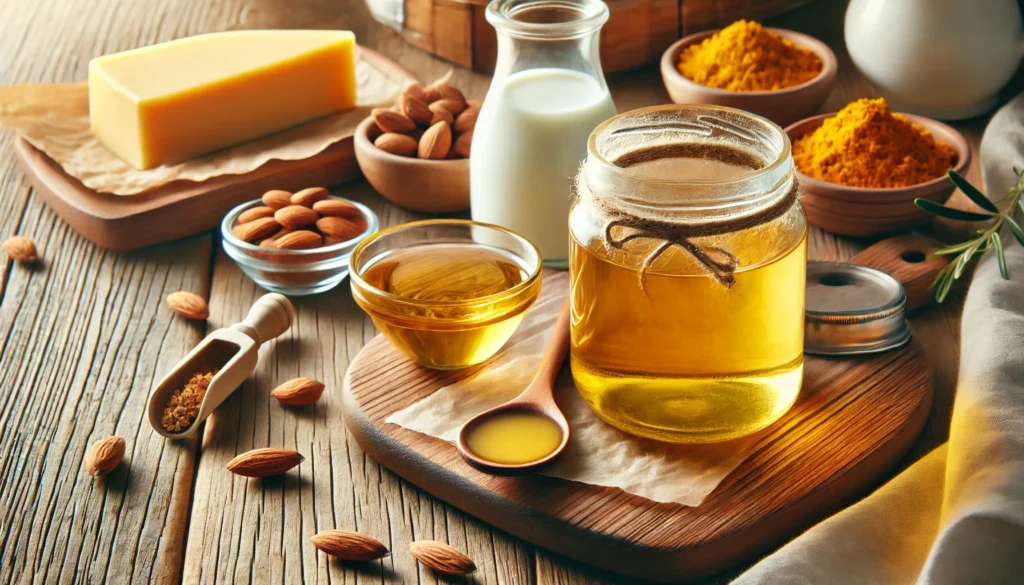
Apart from being a delicious meal, ghee derived from cows is a plentiful supply of essential nutrients that greatly help to preserve one’s health. Its makeup contains a variety of fat-soluble vitamins including vitamins A, D, E, and K. Among the several biological activities these vitamins are necessary for are vision, bone health, brain function, blood coagulation, and other ones. One source of butyric acid, a kind of short-chain fatty acid good for colon health, is ghee. Taken together, these elements help to enhance the immune system, improve skin condition, avoid dysentery and other gastrointestinal problems, and so boost immunity.
3. Application to the Gastrocintestinal System a Sensible Approach
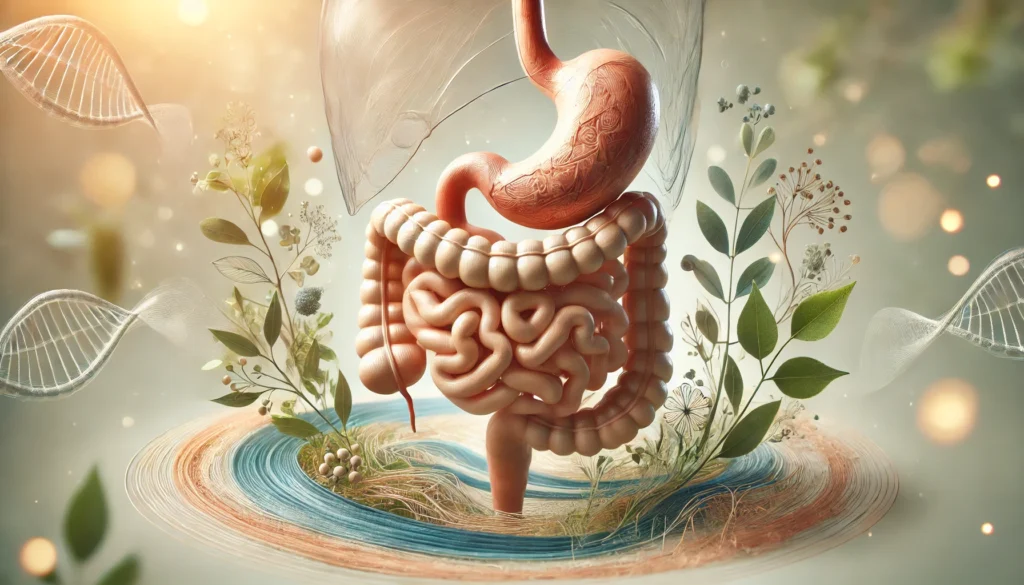
Ayurveda acknowledges that ghee has great power to raise the “Agni,” sometimes known as the digestive fire. This increases the body’s capacity for absorbing and assimilating nutrients in turn. Apart from promoting the synthesis of stomach acids, it accelerates meal digestion as well. Another element that can help the stomach’s digestive system to be calm and promote microbe development inside it is butyric acid. This aids to preserve a healthy environment in the digestive tract, which comprises of controlling issues like bloating and irregular bowel motions accordingly.
4. Cow Ghee’s Health Effects on the Nervous System and the Mind
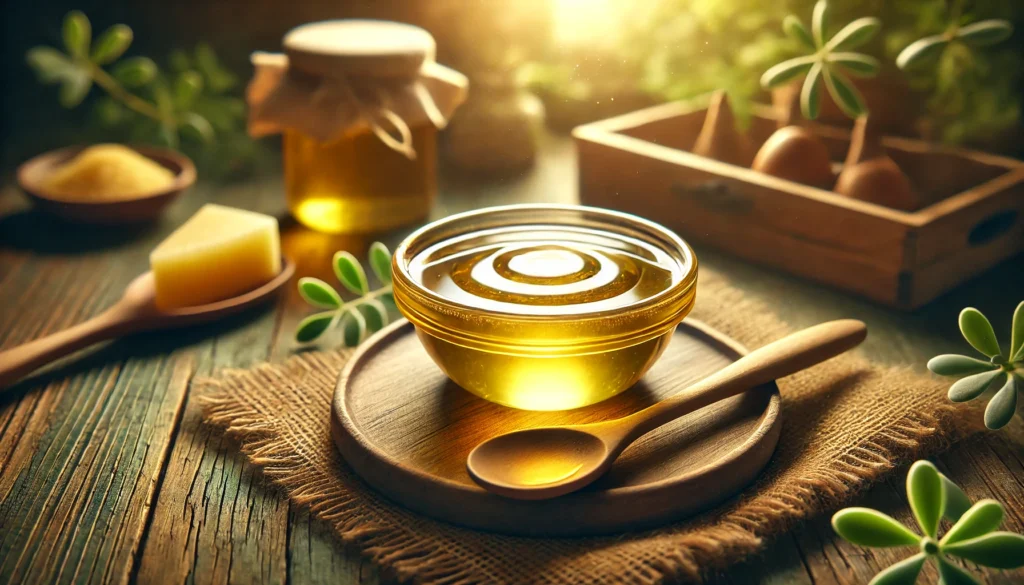
Not only can ghee improve physical health, but also emotional well-being, which makes it much sought for. Advocates of Ayurvedic medicine demand its application to improve cognitive functions like memory, focus, and the processing of past learned knowledge. Ghee is a great diet for preserving brain health because of the good fats it contains; it helps to help nerve impulses to be transmitted. Furthermore helping to lower stress and increase general well-being is this substance’s relaxing properties.
5. Positive Effects on Immunity and Lifespan have been Demonstrated for Cow Ghee
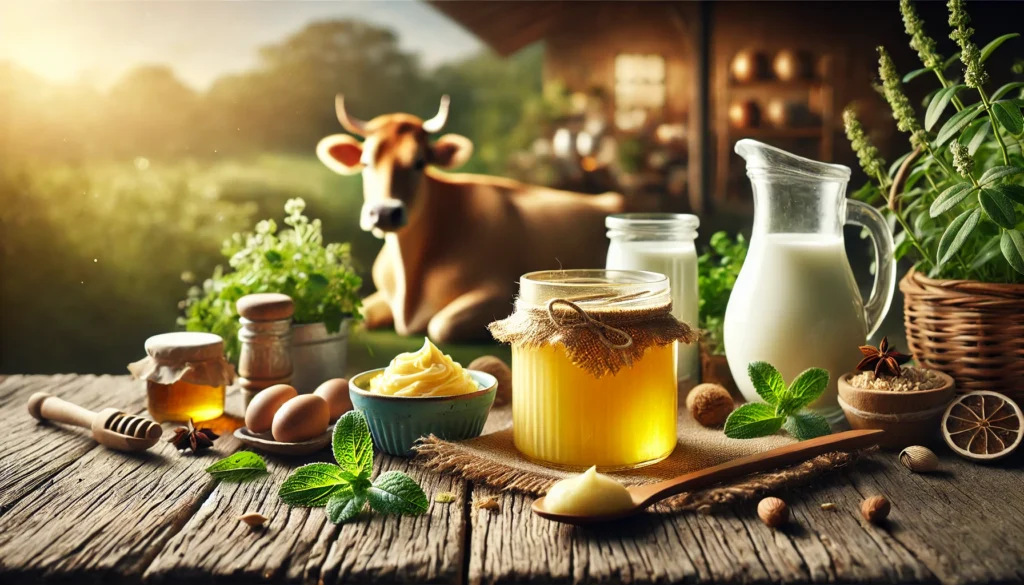
Ghee is a strong immune system booster with great antioxidant value that helps the body fight free radicals and supports the operation of detoxifying systems. From minor colds to more severe cases of inflammatory diseases, the anti-inflammatory properties of it help in the battle against a great range of diseases. Regular ghee intake is also linked with longevity, a basic Ayurvedic principle that holds that ghee is a nectar able to prolong life.
6. Including Cow Ghee on Your Regular Routine
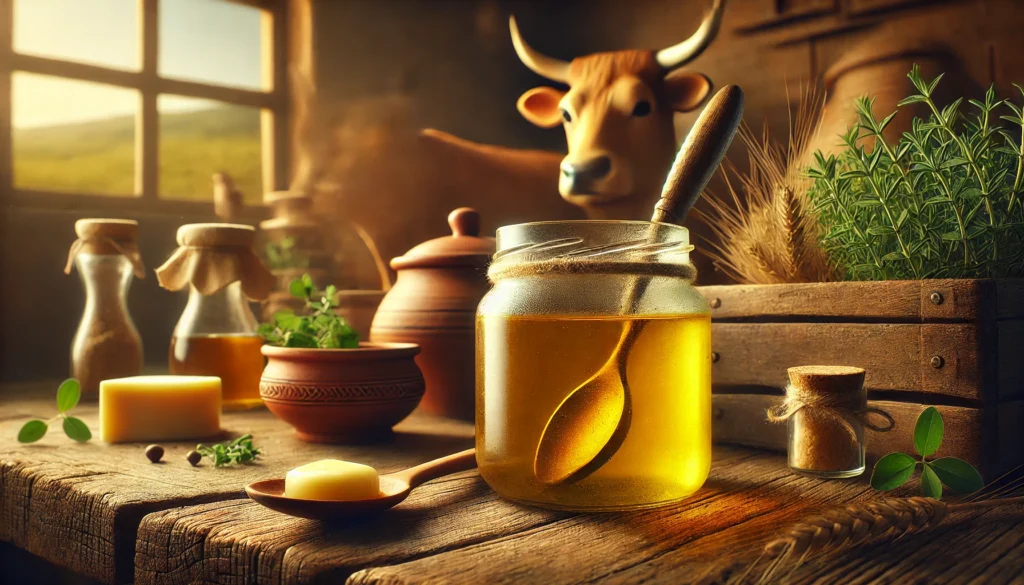
Ghee may be easily included into your daily diet either on toast and cereals or as a cooking medium for sautéing and fried dishes. Moreover, these possibilities offer a range of advantages. Its high smoke point makes it a great choice for high temperature cooking. Furthermore used in Ayurvedic therapies like Panchakarma is ghee since it has very strong penetrating qualities that help the body to cleanse and heal itself.
7. Using Cow Ghee to Attend to Modern Health Issues
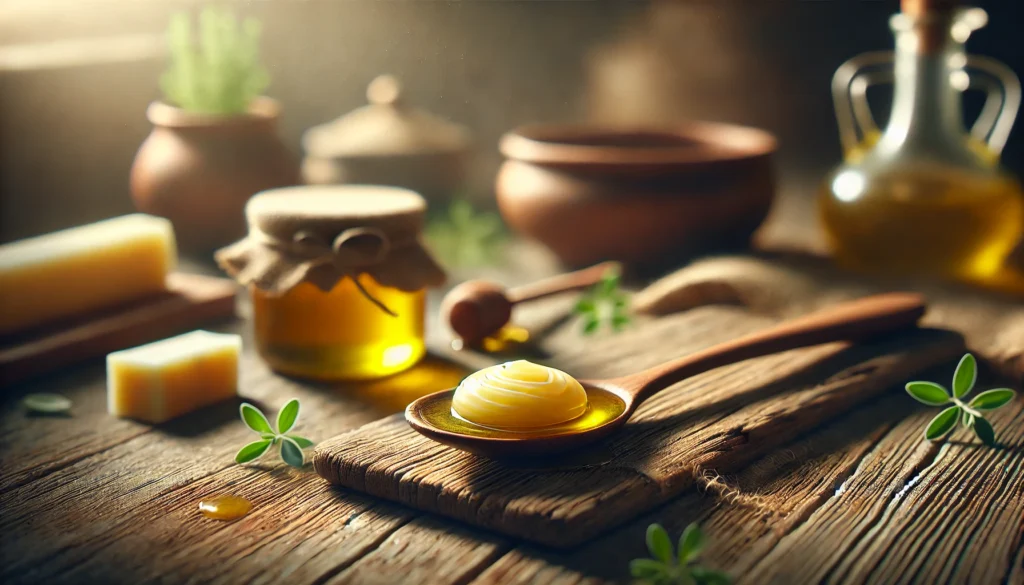
Recent research challenging popular belief suggests that ghee may indeed be helpful for both heart disease and cholesterol levels in the body. This is partially related to the omega-3 fatty acids in ghee helping to lower “bad” cholesterol levels. Furthermore, by boosting feelings of fullness and lowering the glycemic index of meals, ghee can help control weight when included into a well-balanced, healthy diet.
8. Frequently Asked Questions About Environmental and Ethical Issues
Getting ghee from cows bred ethically is becoming more and more crucial if one is to ensure both quality and sustainability. This is so because the demand for health-promoting and natural products is always growing. Furthermore aggravating the situation is the production of ghee should consider the impact it has on the surroundings and support farming methods fit for lowering the generated waste and pollution level.
9. Observations to Finish
Cow ghee is increasingly known as a complete nutritional supplement in both traditional and modern contexts since it can enhance many facets of health, including mental clarity and digestive wellness. When included into a diet, ghee has the ability to significantly increase general health and energy level. Achieving this will help with consideration for Ayurveda’s knowledge and bringing it into line with current ideas of health. Including this golden elixir into daily activities offers a method to reach a more balanced and healthy way of life led by the ideas of an ancient tradition that has survived the test of time.
FAQs – Frequently Asked Questions
-
What are the primary health benefits of consuming cow ghee?
Cow ghee is highly valued for its rich nutritional profile, including essential fatty acids like butyric acid and conjugated linoleic acid (CLA), which aid in digestive health, boost immunity, and can contribute to heart health. It’s also packed with fat-soluble vitamins such as A, D, E, and K, supporting various body functions from vision to immune health.
-
Is cow ghee good for weight management?
Contrary to the belief that fats are detrimental to weight loss, cow ghee contains medium-chain triglycerides (MCTs) that can help in boosting metabolism and reducing insulin resistance. These properties make it beneficial for both weight loss and weight management when consumed in moderation.
-
Can people who are lactose intolerant consume cow ghee?
Yes, cow ghee is suitable for individuals with lactose intolerance as it contains minimal to negligible lactose. The process of making ghee removes the milk solids that contain lactose, making it a safer option for those who are sensitive.
-
What is the recommended daily intake of cow ghee?
The ideal quantity of cow ghee depends on individual dietary needs, but generally, 1 to 2 tablespoons per day is considered moderate and beneficial for most adults. It’s important to adjust this amount based on personal health goals and nutritional advice.
-
How can cow ghee be incorporated into a daily diet?
Cow ghee is versatile in its usage. It can be used as a cooking oil for sautéing and frying due to its high smoke point. It’s also suitable for baking, can be spread on bread, or added to hot beverages. Moreover, its natural flavor enhances the taste of various dishes.

